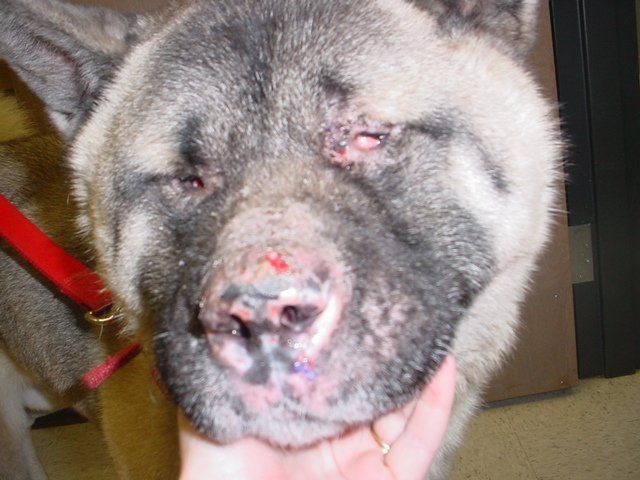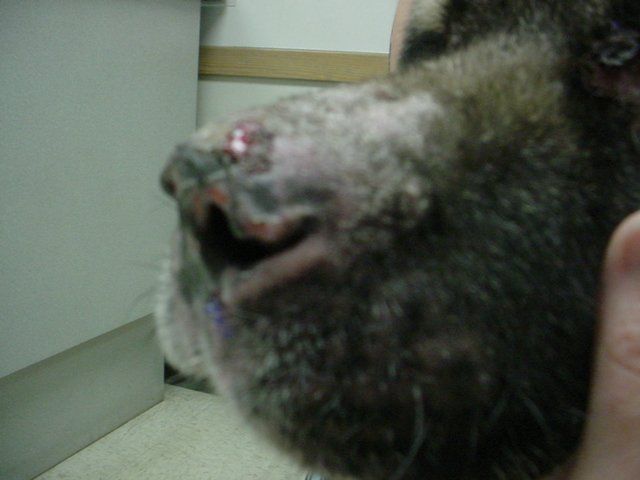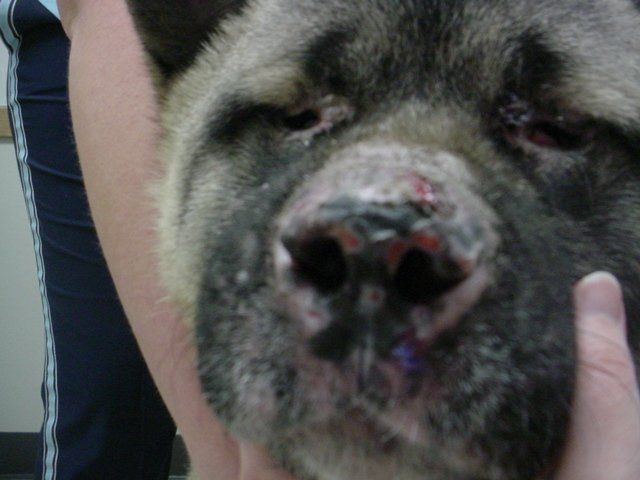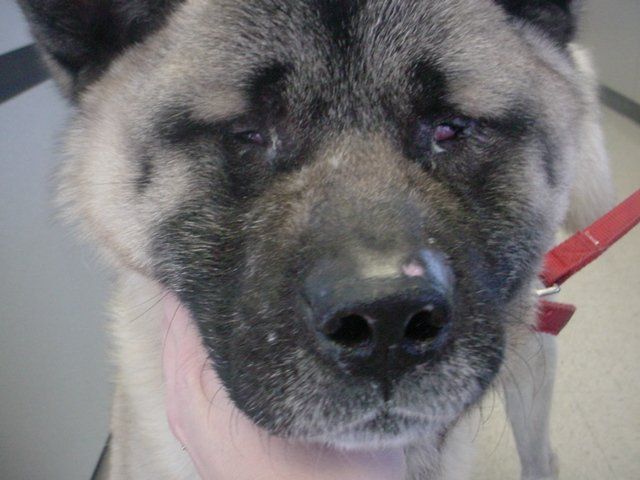Zato - Discoid Lupus Erythematosus (DLE)
Meet Zato. Zato was presented to the All Pets for skin problems. When examined, Zato had scaly skin, hair loss, and nasal depigmentation on his nose. The majority of his skin lesions were present on his face. Since there are many different causes of these types of lesions, skin biopsies of the affected areas were obtained.
The biopsies suggested one of two diseases were present--discoid lupus erythematosus (DLE) or VKH syndrome. Both of these diseases are autoimmune diseases or diseases in which the body attacks its own skin. VKH syndrome is a very rare autoimmune disease that carries a poor prognosis. Additional testing revealed that Zato had the more common DLE.
The mainstay of treatment for DLE is a steroid to suppress the over-aggressive response of the immune system. In most cases, steroids are given at high levels for extended periods of time. Some dogs will go into remission, have normal skin, and will be able to stop the medication. Others will only stay sign free if they stay on medication long-term. In some instances, dogs can be maintained on low levels of steroids and a combination of tetracycline and niacinamide. Since steroids have a lot of side effects other problems can result during their use. Thus, constant monitoring is necessary to determine the best treatment plan.
DLE is considered to be a more mild form of Systemic Lupus Erythematosus (SLE). Dogs with SLE will often have other problems in addition to their skin lesions. Some of these may include arthritis, joint pain, kidney disease, anemia, decreased platelets, decreased white cells, seizures, enlarged lymph nodes, and fever. Both conditions are considered to be hereditary. Females of certain breeds, such as Collies, Shelties, German Shepherds, and Huskies are more prone.
This is Zato during the early phases of his treatment. His skin improved dramatically on steroids. Over time, his skin lesions resolved completely and he was taken off of steroids. He is currently being maintained only on tetracycline and niacinamide.
Special thanks to Zato's owner for allowing us to share this case.






Share On: